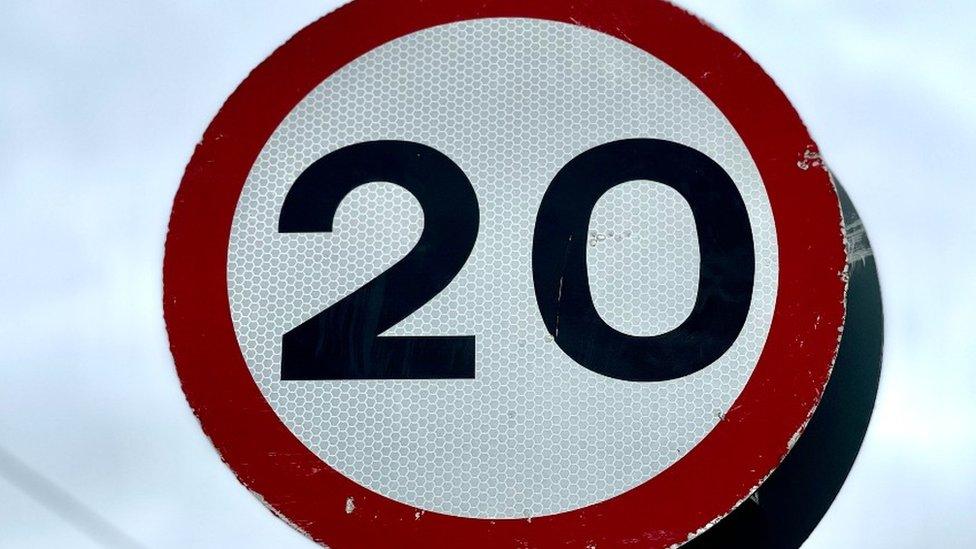Wales 20mph: Speed limit did not cut Belfast crashes - study
- Published
- comments
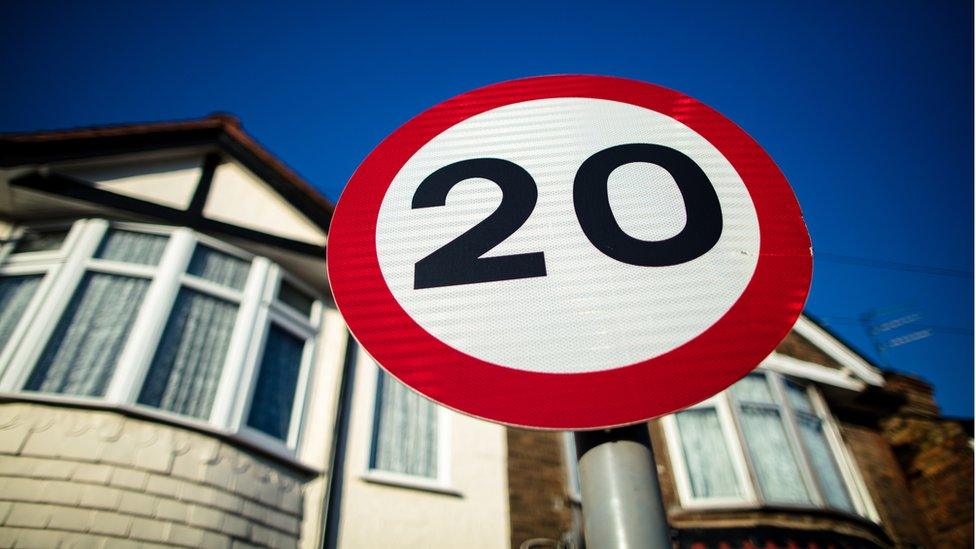
The Welsh government says it wants 20mph to be the default limit for residential areas
Cutting speed limits on urban roads to 20mph does not significantly improve safety, a new report suggests.
The Welsh government has said safety is a key reason behind its plans to become the first UK nation to adopt a 20mph default limit in built-up areas.
But a study of 20mph roads in Belfast found "no statistically significant differences" in the number of crashes, casualty rates or average speeds.
The Welsh government said "bigger cultural change" was needed.
Deputy Climate Change Minister Lee Waters has said the evidence was "very clear" that reducing speed limits saved lives.
He pointed to a study, external by Edinburgh Napier University and Public Health Wales estimating in the first year of a 20mph limit there would be 19 fewer deaths and 213 fewer people seriously injured on roads.
Many UK towns and cities have 20mph limits on residential roads but from 17 September next year Wales will become the first nation to impose it as the default on all restricted roads - with Scotland set to follow suit in 2025, external.
The move was backed by Labour and Plaid Cymru but opposed by the Welsh Conservatives, who said a blanket rollout would be "ludicrous".
A new study, external published by the Journal of Epidemiology and Community Health looked at data from before and after the limit was introduced on 76 roads in central Belfast in 2016.
It found the move had "little impact on long-term outcomes" in the city.
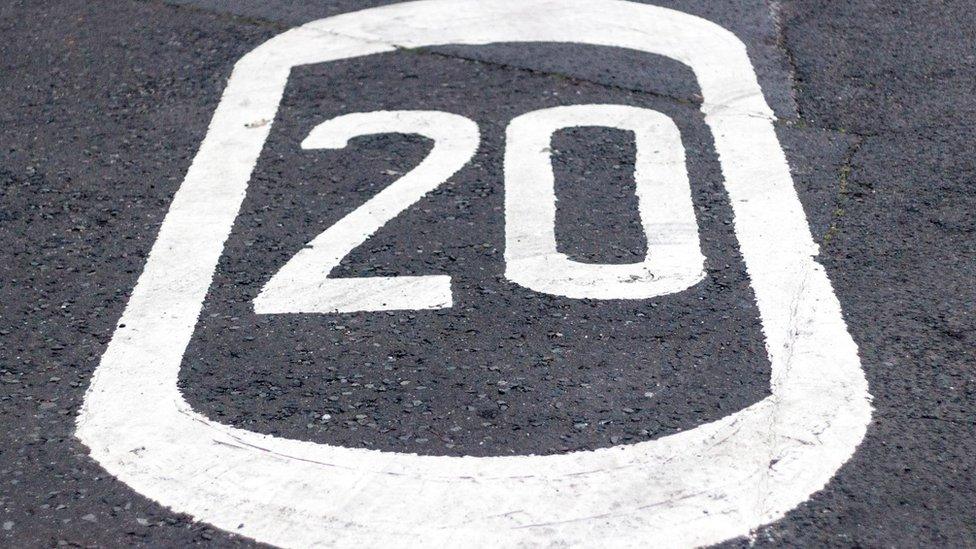
The Welsh government's case for cutting speed limits on safety grounds has been question by new research
Comparisons with nearby 30 or 40mph limit streets in Belfast showed "no statistically significant differences" in the number of crashes, casualty rates or average traffic speed.
The authors argued that 20mph limits could be combined with other measures like driver training, CCTV and police communications for "an ambitious culture change".
They added that cutting limits was "not simply a road safety intervention" but can be "part of the fundamental reset of the way we choose our life priorities - people before cars".
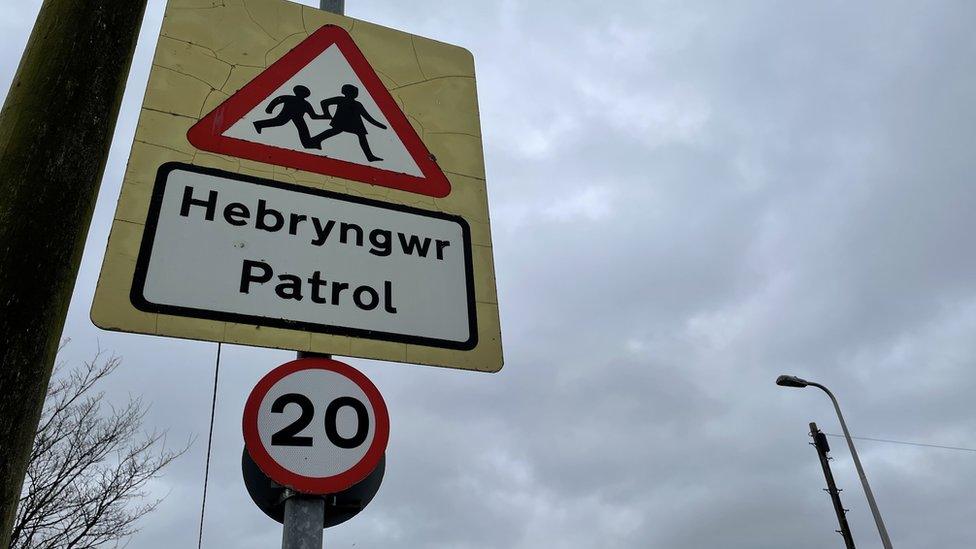
The Welsh government also says 20mph speed limits will reduce air and noise pollution, and encourage more people to walk and cycle
RAC road safety expert Simon Williams told BBC Radio Wales Breakfast he was "slightly concerned" at the findings as they "seem to go against other findings that have been published over the years".
The authors of the report noted their research was smaller in scale than some other studies on the topic.
'Danger people will disregard it'
"Twenty is a very sensible speed limit," Mr Williams said, "but it must imply that something must have been going on [in Belfast] and people are just completely disregarding the speed limit."
He said the new limit will help but there is a "danger that people will disregard it".
"Unless it is strongly enforced or some clever road design to slow people down you do find that average speeds drop which is an overall benefit to road safety."
As well as lowering road crashes, Welsh ministers have previously said 20mph would cut noise and air pollution, and encourage more people to walk or cycle.
The slower limit has been divisive in areas with some motorists complaining of more congestion and journeys taking longer.
The Welsh government said the findings of the study "reinforce its approach" of a "bigger cultural change" being needed for 20mph limits to work.
It added: "We have already seen noticeable reductions in speed across our eight pilot areas."
- Published12 July 2022

- Published23 April 2024
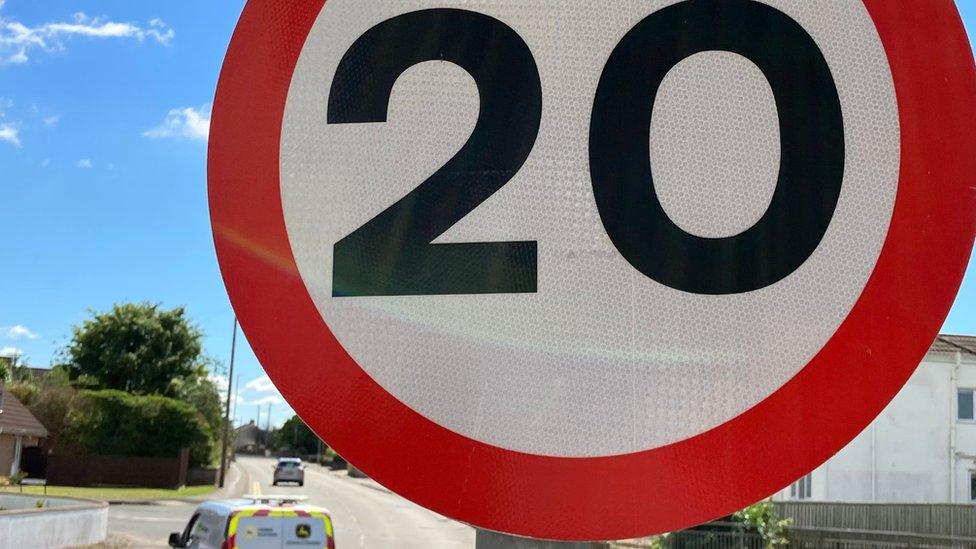
- Published11 March 2022
